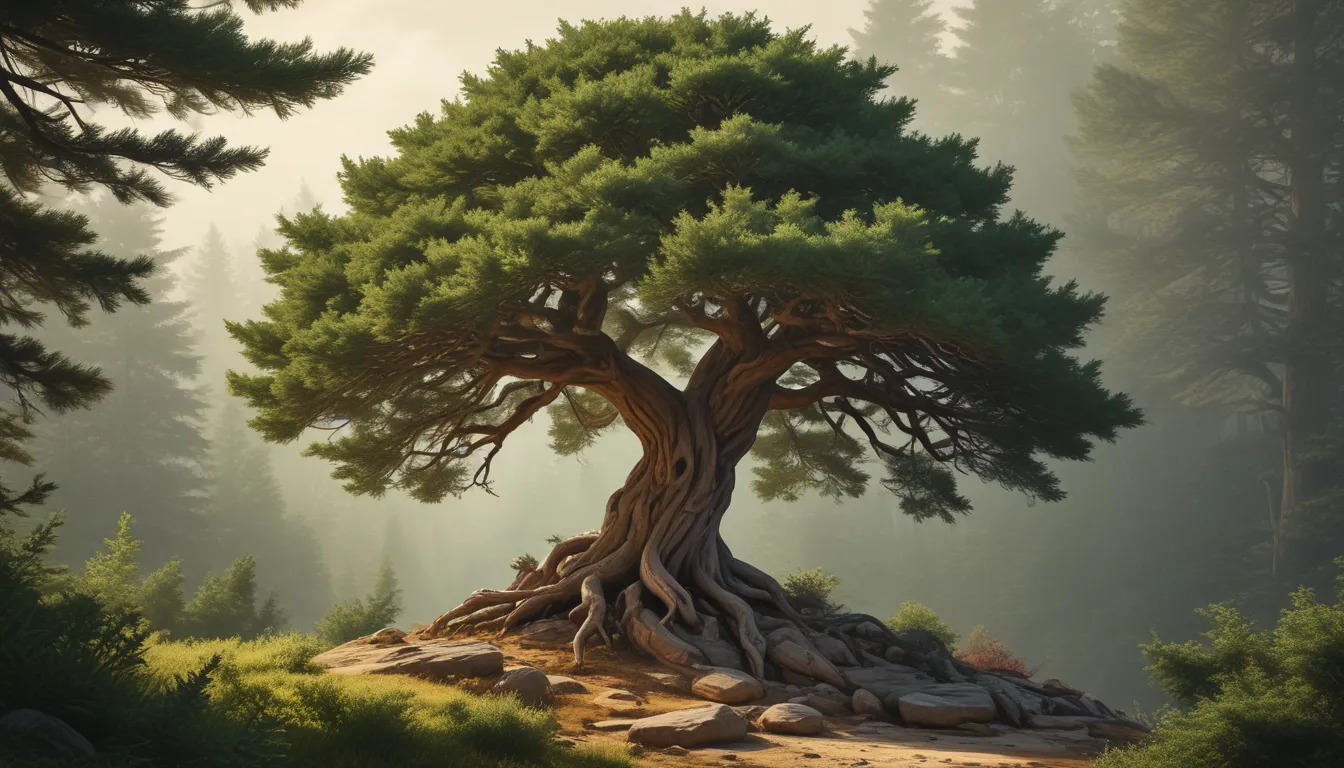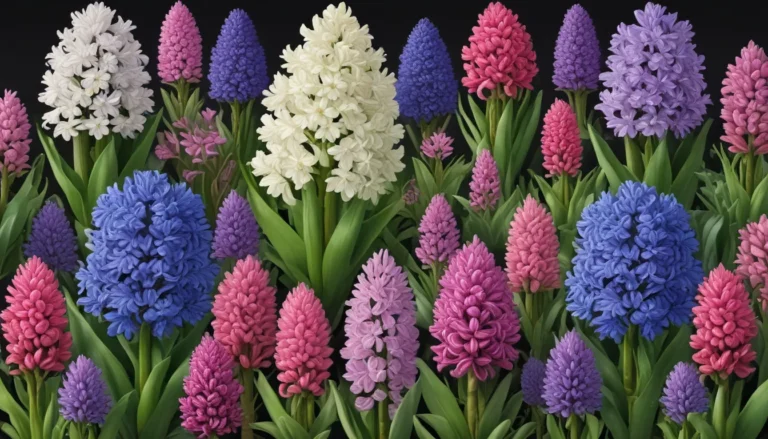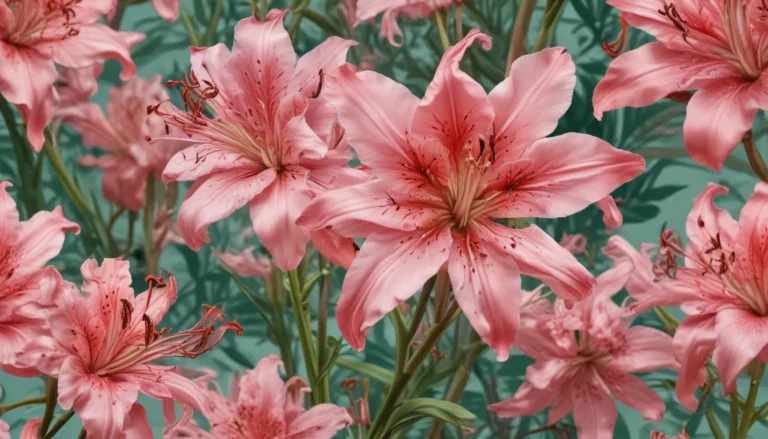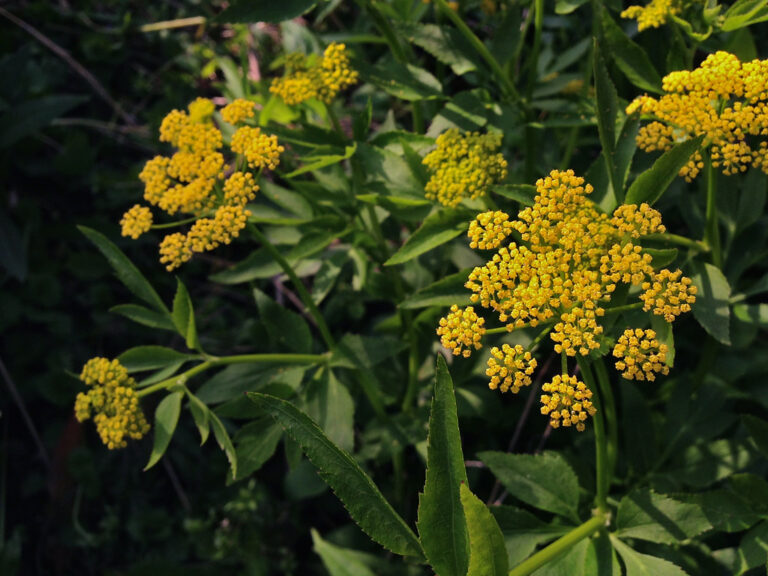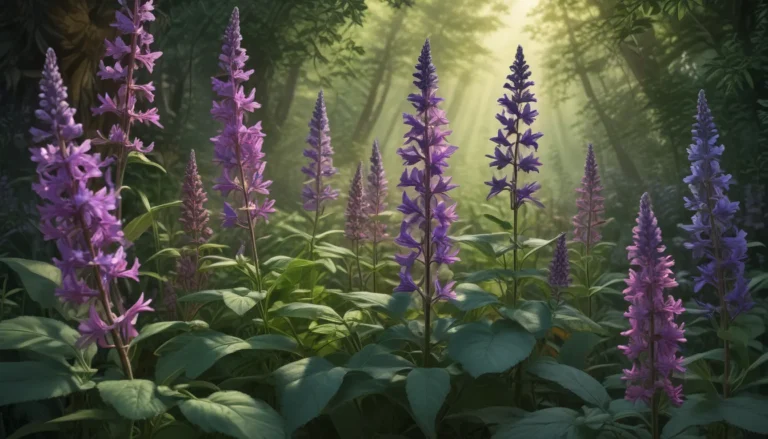The pictures we use in our articles might not show exactly what the words say. We choose these pictures to make you interested in reading more. The pictures work together with the words but don’t take their place. The words still tell you the important facts.
Juniperus, known for its aromatic foliage and symbolic significance, is a captivating genus of evergreen trees and shrubs that has intrigued botanists, gardeners, and nature enthusiasts for centuries. With over 50 species globally distributed, these remarkable plants have left an indelible mark on various aspects of human life. In this article, we will delve into the diverse uses, intriguing biology, and cultural significance of juniperus, uncovering 14 astounding facts that highlight why these plants are truly exceptional.
The Diversity of Juniperus:
Juniperus, commonly known as juniper, encompasses over 50 recognized species, each with unique characteristics and habitats. These plants are found worldwide, thriving in regions ranging from arctic tundra to desert environments. Contrary to popular belief, juniper berries are not true berries but modified cones that have evolved to resemble berries.
The Symbolism of Juniperus:
Throughout history, juniper has symbolized strength, purity, and protection. The wood and berries of juniper plants are used in various rituals and ceremonies in many cultures. Juniperus plants are renowned for their aromatic foliage, releasing a distinctive fragrance when touched or crushed.
The Value of Juniperus Wood:
The durable and beautifully grained wood of juniper plants is highly prized in the woodworking industry. From furniture to decorative items, juniper wood adds a touch of elegance to various products. Some species of juniper can live for hundreds of years, showcasing their longevity.
Ecological Importance of Juniperus:
Juniper plants play a crucial role in their ecosystems, providing habitats and food sources for wildlife while stabilizing soil and preventing erosion. The distinctive blue-green foliage of juniper trees adds beauty to landscapes and gardens, making them popular choices in landscaping projects.
Juniperus in Gin Production:
Juniperus communis, commonly known as common juniper, is the primary botanical used to flavor gin. Its berries impart the distinct flavor and aroma that characterize this popular alcoholic beverage. Juniper has also been used for centuries in traditional medicine to treat various ailments.
Cultural Significance of Juniperus:
Within Native American traditions, juniper holds spiritual significance, with juniper branches and berries used in ceremonies and purification rituals. The slow growth rate of juniper trees makes them ideal for long-term landscaping projects, showcasing their adaptability to challenging environmental conditions.
Exploring Western Juniper and Rocky Mountain Juniper:
Delve deeper into the fascinating world of junipers by exploring Western Juniper and Rocky Mountain Juniper, two remarkable species within this diverse genus. Learn about their unique characteristics and habitats that make them stand out in the world of botanical diversity.
Conclusion
In conclusion, Juniperus is a truly remarkable plant with a rich history and an array of fascinating facts. From its resilience in diverse landscapes to its medicinal properties and cultural significance, juniperus continues to captivate and amaze. Whether you are a nature enthusiast, a gardener, or simply someone who appreciates the beauty of the natural world, exploring and learning about Juniperus can be a rewarding experience.
Next time you encounter a Juniperus tree or shrub, take a moment to appreciate its beauty and remember these astounding facts about this resilient and versatile plant.
FAQs
-
Q: What are some common types of Juniperus?
A: Some common types include Juniperus chinensis, Juniperus virginiana, and Juniperus communis. -
Q: Is Juniperus known for its medicinal properties?
A: Yes, with believed diuretic, antiseptic, and anti-inflammatory properties. -
Q: Can Juniperus be grown in different climates?
A: Yes, with adaptability to thrive in various climates. -
Q: Are all Juniperus plants evergreen?
A: No, with a few deciduous species among the evergreen varieties. -
Q: How long does it take for Juniperus to grow to maturity?
A: Depending on species and conditions, it takes approximately 10 to 20 years for maturity.
Quality Information You Can Trust
At [Source Name], our commitment to delivering trustworthy and engaging content is paramount. Each fact shared is contributed by users like you, ensuring diverse insights and information. Our dedicated editors rigorously review submissions, guaranteeing the highest standards of accuracy and reliability. Trust in our commitment to quality and authenticity as you explore and learn about the remarkable world of Juniperus.
